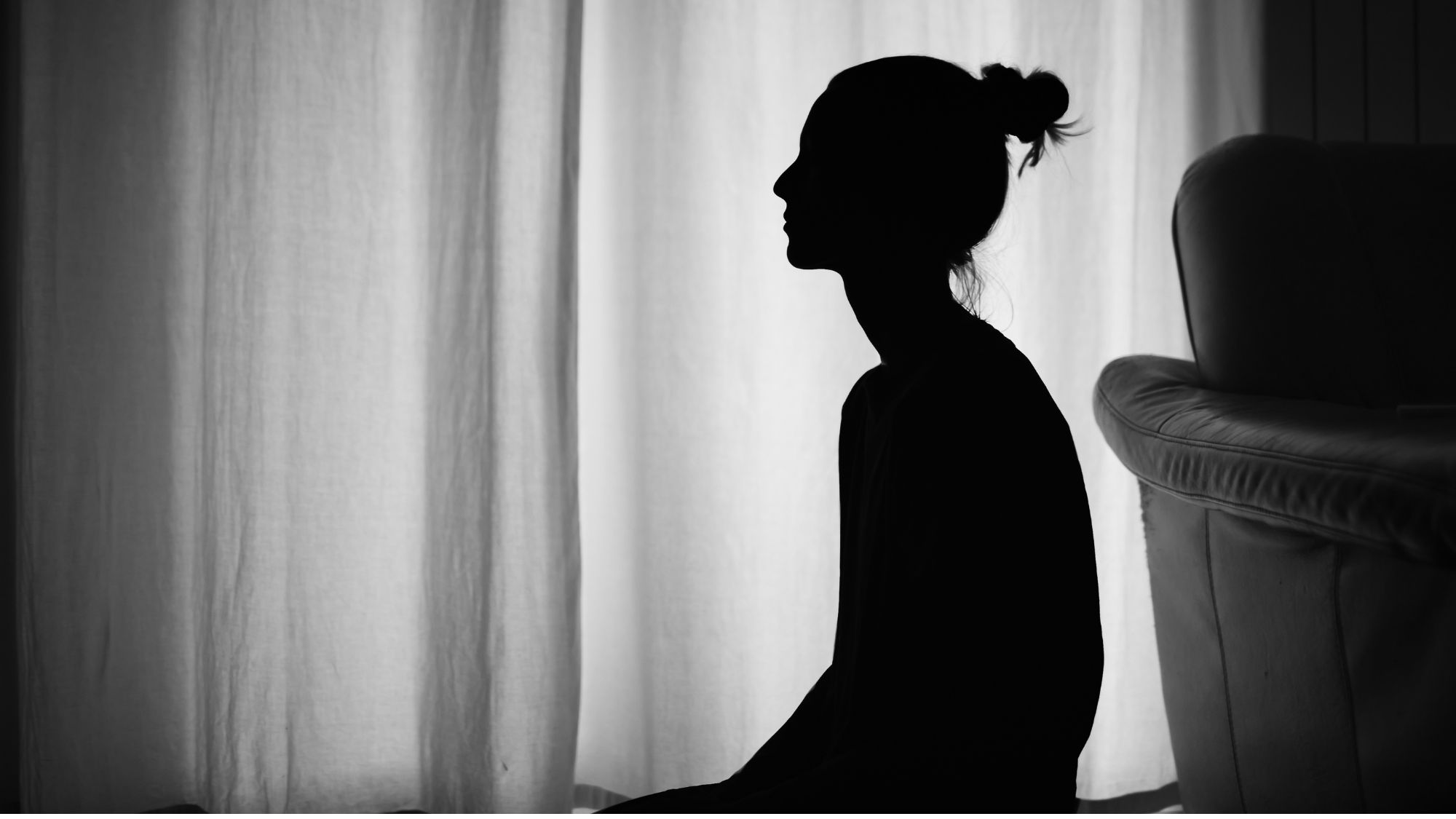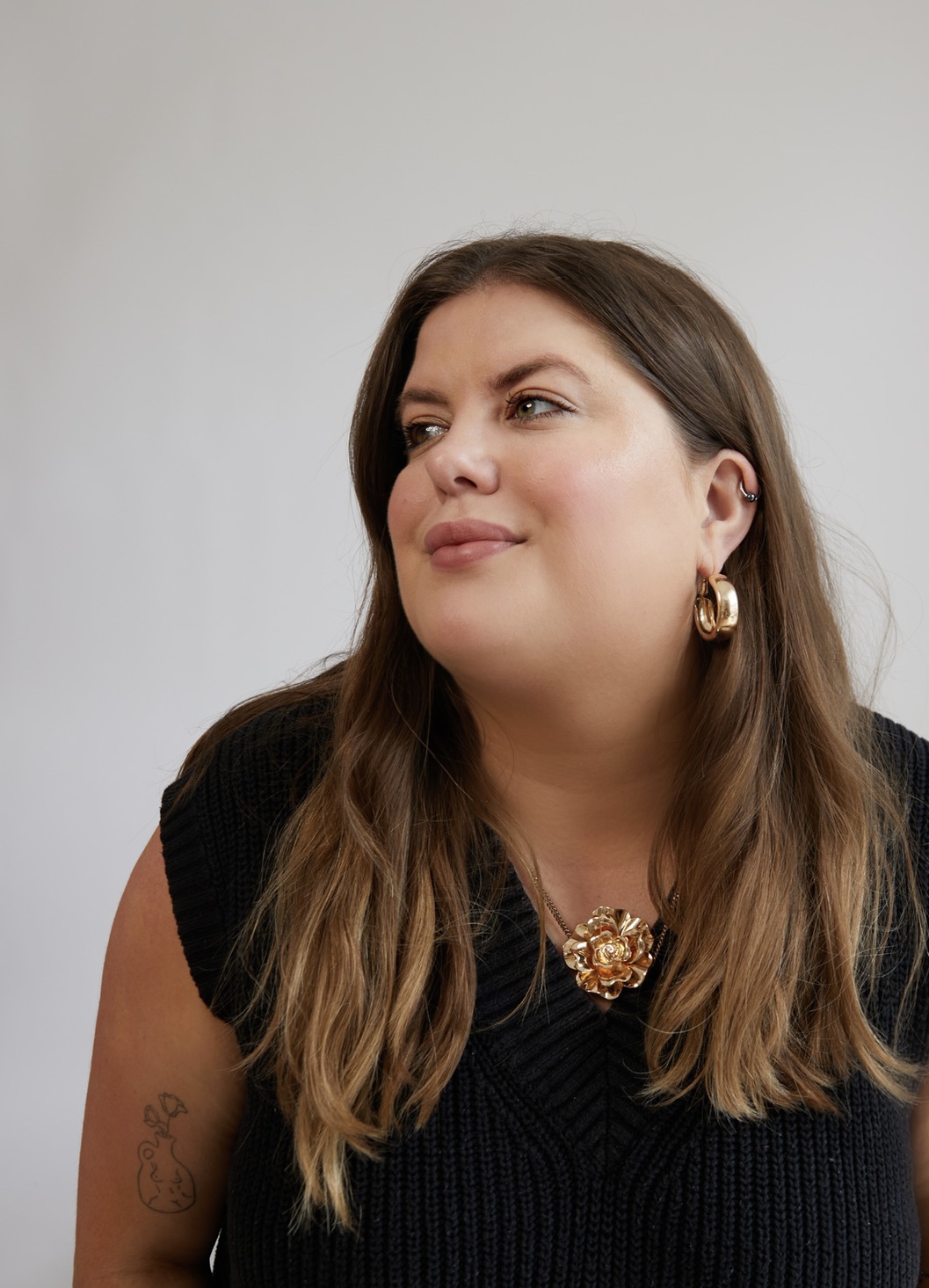Katie faces trial for having an NHS-prescribed abortion - this is what she wants you to know
“I never stop thinking about it. It’s always there.”


During the COVID-19 lockdown, Katie (using a pseudonym for legal reasons) was prescribed an abortion over the phone by an NHS provider and received the pills by post. With no symptoms indicating she was further along than six weeks, Katie was horrified to find herself giving birth to a dead baby alone in her bathroom. Instead of receiving support for her trauma, she was charged with procuring poison to induce a miscarriage.
Ahead of the trial, Katie cannot publicly share exactly how far along the pregnancy was. However, it was clear to both her and the medical staff that she was much further along than she had initially thought.
Over the phone, Katie tells Marie Claire about the ordeal: “In the first few weeks after it happened, I had to take everything hour by hour, but over the nearly four years, I have gotten stronger. I want to fight this case not just for myself but because no one should ever have to go through what I am going through.”
This has, at times, made me feel suicidal.
“This story is far too common; it should not exist,” she says. “Northern Ireland decriminalised [abortion] in 2019. I know it’s still really difficult to get an abortion there, but at least you’re not facing going to prison for having one. Why hasn’t the UK caught up to that?” wonders Katie.
Many believe that abortion is legal in the UK; this is a misunderstanding. Abortion is allowed up to 24 weeks on the condition that continuing the pregnancy involves a greater risk to the physical or mental health of the person—or the physical or mental health of the person’s existing children—than having a termination. Women can, and are, being prosecuted for having abortions in the UK. Katie is not alone in her experience.
Katie has been waiting for three years for a trial date, which is now set for later this year. She hopes it won’t go ahead: “This has at times made me feel suicidal. You can go months without hearing anything [legal updates], and the stress and anxiety that causes is immense. I feel frightened a lot of the time. I’m on medication, which helps, but some days I just cry. I never stop thinking about it. It’s always there. The flashbacks have been more frequent.”
Some days I just cry
The 1967 Abortion Act legalised terminations in England, Wales, and Scotland up to 28 weeks, with the legal limit later reduced to 24 weeks. However, abortions are only lawful if two doctors agree that continuing the pregnancy would pose a risk to the woman’s physical or mental health. So, even today, any unregulated abortion or attempt to terminate a pregnancy without medical supervision remains unlawful. Those who assist can also be prosecuted.
Marie Claire Newsletter
Celebrity news, beauty, fashion advice, and fascinating features, delivered straight to your inbox!
In 2021, a 15-year-old girl who experienced an unexplained early stillbirth faced a year-long criminal investigation. During this period, her text messages and search history were scrutinised. The case was eventually dropped after a coroner determined the pregnancy ended due to natural causes.
I never stop thinking about it. It’s always there. The flashbacks have been more frequent.
The teenager was investigated under the 1861 Offences Against the Person Act, which criminalises procuring a miscarriage using “poison,” “an instrument,” or “other means whatsoever,” with those found guilty facing life imprisonment.
Speaking with Marie Claire UK, the now 45-year-old Katie said, “It’s a huge waste of resources, as well. When you think that rape convictions are so low, maybe go and spend some time looking into that rather than attacking women that have had an abortion.”
Katie’s Story
During lockdown, Katie took a pregnancy test as a precaution. She had been told that having children would likely be impossible due to her endometriosis diagnosis and previous surgeries on her cervix. To her surprise, the test was positive. Katie immediately knew she wanted an abortion.
Katie’s body showed no signs of pregnancy: no baby bump and her dress size stayed the same. With her periods always irregular due to endometriosis, she assumed she must be under ten weeks pregnant. She obtained an abortion from an NHS provider, took the medication, and for twelve hours, nothing happened. Then, suddenly, she gave birth to a dead baby alone in her bathroom and realised she was much further along in her pregnancy than she could have known.
In shock, Katie was rushed into surgery to remove the placenta, a procedure that saved her life. Despite this trauma, a midwife called the police, leading to Katie being interrogated and arrested just 48 hours after her surgery: “It does put you off going to the hospital for any reason, really. You don’t know where you might end up,” she said.
Her anti-clotting medication was delayed, and she spent several hours under investigation, with her laptop and phone seized. Her family didn’t know where she was for around three days.
After years of waiting and fighting, Katie faces trial later this year. She has already spent £50,000 on legal fees and needs to find £100,000 more to fund her trial. The experience has cost Katie more than money. She suffers from post-traumatic stress disorder, and her mental health is shattered. However, she is determined to fight on, not just for herself but for all women in similar situations. This week, she launched the campaign #notacrime, calling for legal reform.
“It affects every area of my life,” Katie explains. “It was extremely traumatic, and that trauma has been added to by the ongoing investigation and potential trial. Every time I see a police car or police anywhere, I freeze. It’s always at the back of my mind; I never really stop thinking about it. I try to be present, in the moment, but it’s like I’m not fully there, which is a sad way to live.”
The Movement for Decriminalisation
In April of this year, a cross-party group of MPs proposed legislation to establish abortion access as a human right in England and Wales. This legislation aims to decriminalise abortion up to 24 weeks and introduce protections to prevent any future restrictions on access.
Until recently, prosecutions under the Victorian law were rare, but they are becoming more common. Many suspect this is partly due to the rise in global anti-abortion laws and rhetoric. There is also a practical reason: during the pandemic and made permanent in August 2022, women can now receive abortion medication (two drugs taken a few hours apart) by post following a telemedicine consultation, provided they are less than ten weeks pregnant. While this change has made abortion access easier, it has a significant flaw: it is impossible to accurately determine how far along a pregnancy is through a phone call. Katie’s story is proof of this.
Labour MP Stella Creasy, who is spearheading the legislation amendment, emphasises the importance of enshrining access to abortion in law as a human right. She believes that when women are suspected of inducing a miscarriage, they should be approached from a safeguarding perspective rather than a criminal one.
Katie agrees, adding, “Abortion is healthcare and should be regulated by healthcare professionals, not politicians.”

Chloe is a London-based freelance journalist and poet, who specialises in gender equality, beauty, and culture. She is a contributing editor at Glamour, and has written for the likes of Dazed, Refinery29, Vogue, Cosmopolitan, Vice, and many more. In 2017, she founded the feminist platform FGRLS CLUB.
-
 The Emily in Paris cast has spoken out as one of its stars officially quits the show
The Emily in Paris cast has spoken out as one of its stars officially quits the showBy Jenny Proudfoot
-
 Timothée Chalamet’s mother has opened up about his relationship with Kylie Jenner
Timothée Chalamet’s mother has opened up about his relationship with Kylie JennerBy Jenny Proudfoot
-
 Princess Kate has started a new tradition with Prince Louis’ birthday portrait
Princess Kate has started a new tradition with Prince Louis’ birthday portraitBy Jenny Proudfoot